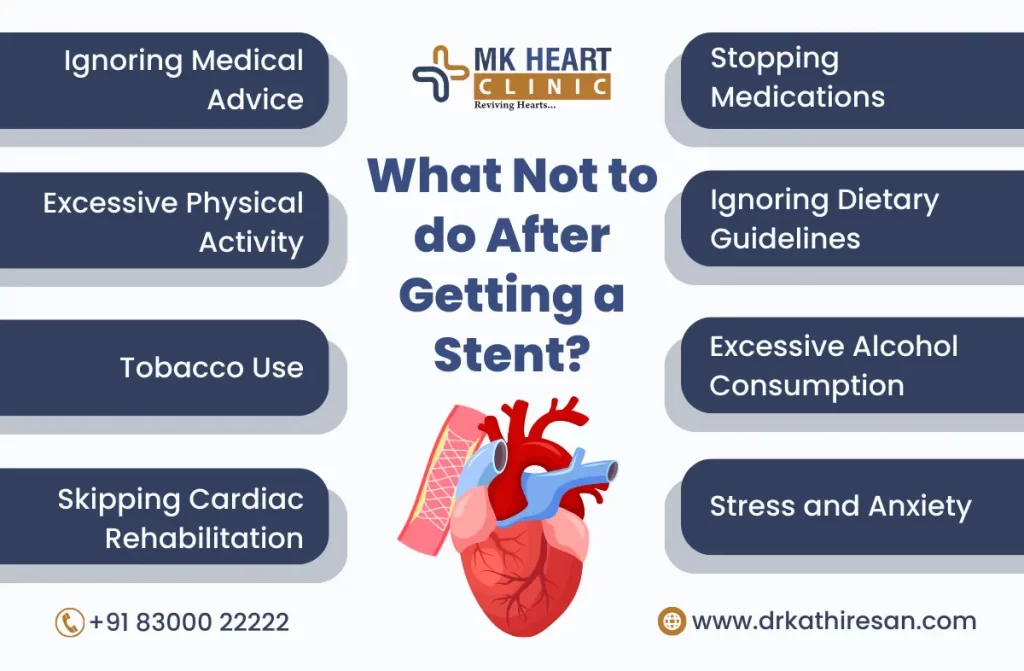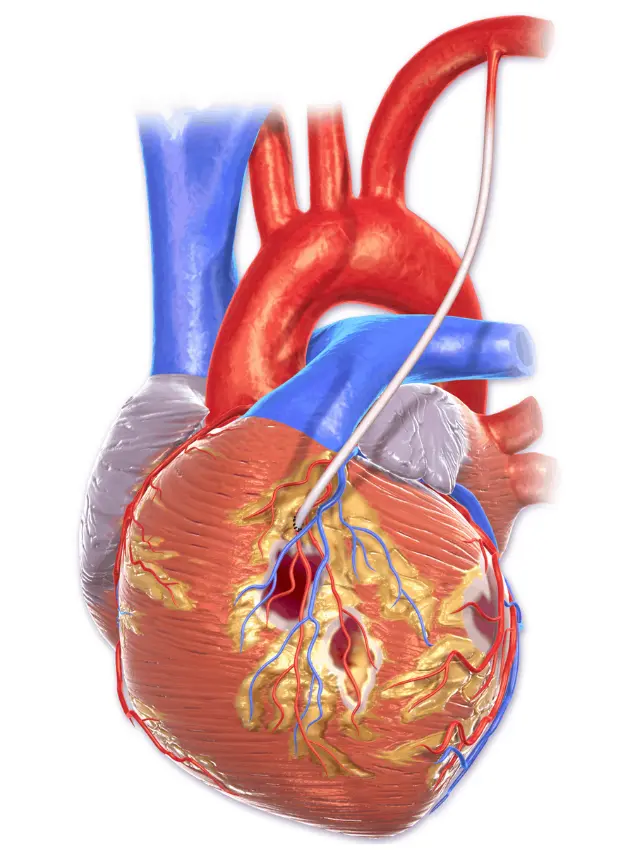Post-bypass angioplasty in Chennai involves close monitoring of the patient’s condition, medication management, and lifestyle modifications. Regular follow-up appointments with cardiologists and adherence to a heart-healthy diet and exercise regimen are essential for a successful recovery and long-term cardiovascular health. Chennai offers top-notch medical facilities and experienced healthcare professionals for this purpose.
What is post-bypass angioplasty?
Post-bypass angioplasty, also known as percutaneous coronary intervention (PCI) after coronary artery bypass grafting (CABG), is a medical procedure performed to address blockages or narrowing in the arteries of the heart that have previously undergone coronary artery bypass surgery.
In this procedure, a catheter with a balloon at its tip is inserted into the blocked or narrowed artery, and the balloon is inflated to compress the plaque or blockage and restore blood flow. A stent is frequently used to help keep the artery open. Post-bypass angioplasty in Chennai is typically used when the bypass grafts become narrowed or blocked, and it can help improve blood flow to the heart muscle, relieving symptoms and reducing the risk of further cardiac issues.
Causes of Post-bypass angioplasty
Post-bypass angioplasty in Chennai, also known as percutaneous transluminal coronary angioplasty (PTCA) or coronary angioplasty, is a medical procedure performed to treat blockages or narrowing in the coronary arteries.
- Restenosis: One of the primary causes is restenosis, which occurs when the treated artery becomes narrowed again over time due to the body’s natural healing response, often driven by the proliferation of smooth muscle cells.
- Lifestyle factors: Poor lifestyle choices, such as smoking, a high-fat diet, lack of exercise, and excessive stress, can lead to the recurrence of arterial blockages following angioplasty.
- Diabetes: Individuals with diabetes are at an increased risk of post-bypass angioplasty, as diabetes can accelerate the progression of atherosclerosis and hinder the healing process.

Who is the Right Doctor for Post-bypass angioplasty?
Dr. M. Kathiresan is a renowned cardiothoracic surgeon who specializes in coronary artery bypass surgery and angioplasty. He would be an appropriate choice to consult for post-bypass angioplasty care. However, it’s essential to remember that post-bypass angioplasty in Chennai care often involves a multidisciplinary approach.
This means that in addition to the surgeon, you may also need to consult with a cardiologist, an interventional cardiologist, or other specialists, depending on your specific medical needs. It’s essential to follow the guidance of your primary care physician or cardiologist when seeking the right team of doctors for your post-bypass angioplasty care.
Treatment for Post-bypass angioplasty
After undergoing a bypass angioplasty procedure, patients need to follow a comprehensive treatment plan to ensure a successful recovery and maintain heart health.
- Medications:
- Antiplatelet medications, such as aspirin or clopidogrel, are often prescribed to prevent blood clots and reduce the risk of restenosis (narrowing of the arteries).
- Statins to lower cholesterol levels and reduce the risk of atherosclerosis.
- Beta-blockers to manage blood pressure and reduce the workload on the heart.
- ACE inhibitors or angiotensin II receptor blockers (ARBs) to control blood pressure and improve heart function.
- Nitro-glycerine or other medications to manage angina (chest pain).
- Lifestyle Modifications:
- Smoking cessation: If you smoke, quitting is crucial for heart health.
- Weight management: Maintaining a healthy weight is important to reduce the risk of heart disease.
- Stress management: Stress can negatively impact heart health, so it’s important to find effective stress-reduction techniques, such as meditation or yoga.
- Cardiac Rehabilitation:
- Cardiac rehabilitation programs offer structured exercise, education, and emotional support to help you recover and maintain heart health.
- Psychosocial Support:
- Heart disease can be emotionally challenging, so seeking support from family, friends, or a mental health professional can be beneficial.
Procedure Overview
- Diagnostic Evaluation: Thorough assessment through imaging studies and diagnostic tests to identify issues post-bypass.
- Angioplasty Technique: A catheter is inserted into the affected artery, and a balloon is inflated to widen the vessel. Stent placement may follow to maintain optimal blood flow.
- Guidance Technology: Advanced imaging technologies aid in precise navigation during the procedure.
- Recovery and Monitoring: Post-procedure, patients are closely monitored for recovery and potential complications.
Benefits of Post-bypass Angioplasty in Chennai
Post-bypass angioplasty, also known as percutaneous coronary intervention (PCI) or stent placement after coronary artery bypass surgery, can offer several potential benefits. This procedure is typically performed when there is a blockage or narrowing of the bypass grafts created during coronary artery bypass surgery (CABG).
- Improved Blood Flow: The primary goal of post-bypass angioplasty in Chennai is to restore blood flow through the grafts or coronary arteries that may have become narrowed or blocked after the initial bypass surgery. This can alleviate symptoms like chest pain (angina) and improve overall heart function.
- Symptom Relief: Patients who experience chest pain, shortness of breath, or other symptoms due to graft or native coronary artery blockages can experience significant relief after the angioplasty procedure. This improved symptom control can enhance their quality of life.
- Reduced risk of future heart events: By improving blood flow and reducing blockages, post-bypass angioplasty in Chennai can lower the risk of future heart-related events such as heart attacks, arrhythmias, and the need for repeat bypass surgery.
Risks of Post-bypass angioplasty
Post-bypass angioplasty, also known as percutaneous coronary intervention (PCI) or angioplasty after coronary artery bypass surgery, is a medical procedure performed to treat narrowed or blocked coronary arteries following a previous coronary artery bypass graft (CABG) surgery.
- Infection: There is a risk of infection at the site where the angioplasty was performed, although this is relatively rare.
- Bleeding: Bleeding at the catheter insertion site is possible. It’s usually minor but can occasionally require medical attention.
- Allergic reaction: Some people may have an allergic reaction to the contrast dye used during the procedure.
Conclusion
post-bypass angioplasty in Chennai is a critical phase in the management of patients who have undergone coronary artery bypass surgery. This phase involves careful monitoring and follow-up to ensure the success of the procedure and the long-term well-being of the patient.
Patients must adhere to a prescribed regimen of medications and lifestyle changes to maintain the patency of the newly created bypass grafts and to prevent further complications. Regular check-ups, including imaging studies and stress tests, are essential to assess the graft’s functionality and overall cardiac health. Moreover, patient education and support are vital in promoting a heart-healthy lifestyle.


